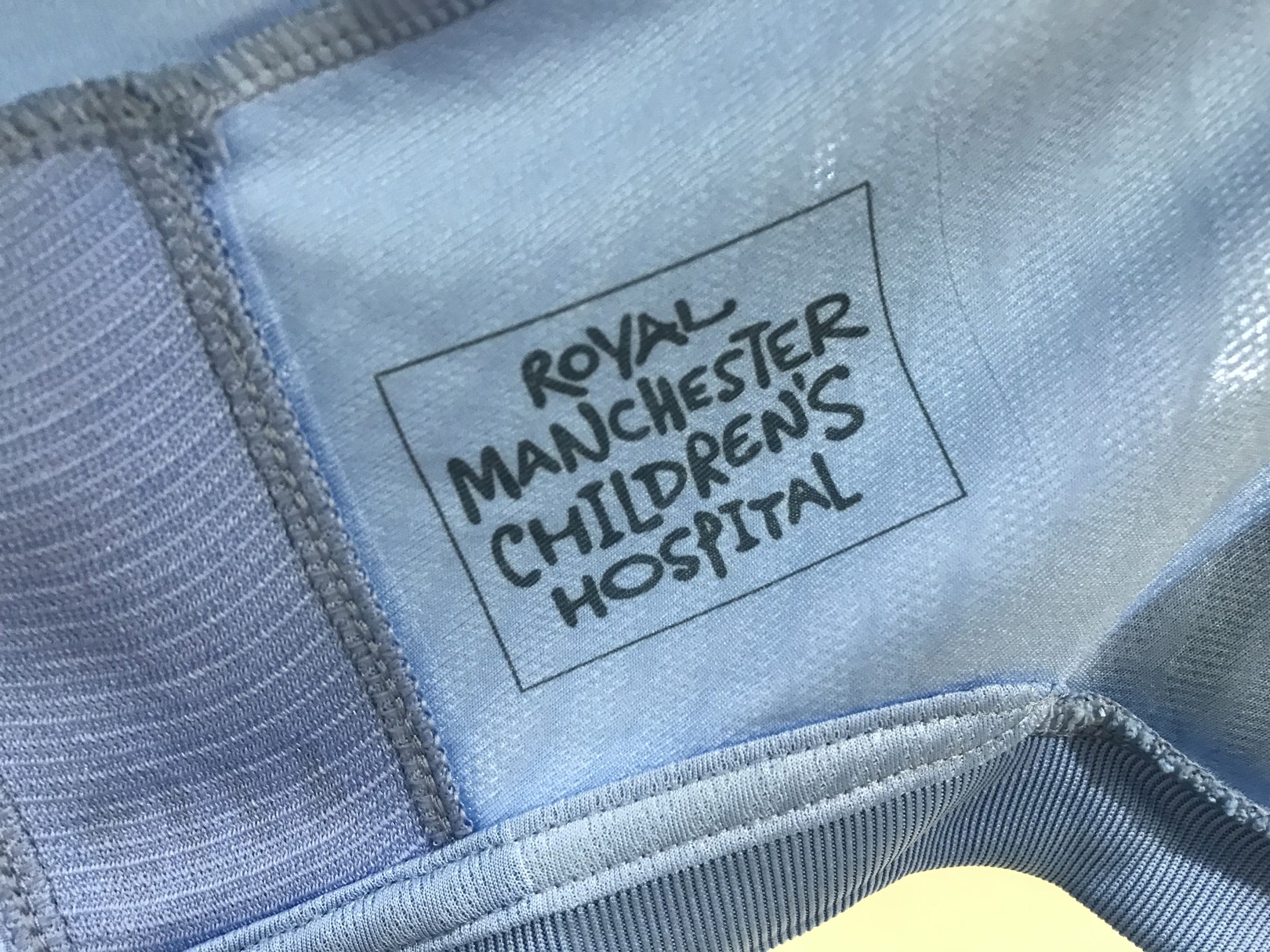As part of a new pilot project developed over the last 12 months in collaboration with the hospital, Manchester Fashion Institute at Manchester Metropolitan University and HMPPS, the gowns have been designed, created and donated to help support children in hospital and allow them to feel like their on-field heroes as they battle some of the toughest moments of their lives.
Following initial discussions between Manchester City and Royal Manchester Children’s Hospital Charity last year to discover ways to improve hospital visits and stays for children, the Club joined forces with MFI and HMPPS to bring the project and the gowns to life.
Students, academics and technical staff from the Manchester Fashion Institute and Departments of Nursing and Psychology at Manchester Metropolitan University worked alongside hospital staff and the families of some of the hospital’s young patients to research, develop and deliver the new designs that will see Manchester City shirts turned into gowns that are easy to use, more comfortable for patients and meet clinical standards for use in a hospital.
Prototype gown samples were developed and tested with the textile teams at HMPPS, who manufactured the gowns for the project, which have now been donated for use within the Royal Manchester Children’s Hospital.
Danny Wilson, Managing Director – Manchester City Operations, said: “Manchester City are delighted to be part of this collaborative new pilot project which will provide children at Royal Manchester Children’s Hospital the option to wear their City blue colours whilst in hospital.
“If we can make even a small difference to their experience through the donation of these gowns, we’ll be extremely proud and I’d like to thank the hospital, Manchester Fashion Institute at MMU and HMPPS, as well as our partner PUMA, for their cooperation, effort and work over the last year to turn this idea into a reality.”
Cath Doherty, Consultant Paediatric Anaesthetist at Royal Manchester Children’s Hospital, said: “Surgery can be a tough time for a young patient so anything that can help put their mind at ease is welcomed.
“We care for lots of young children and teenagers who are Manchester City fans so we’re sure they’ll enjoy wearing the shirts. We can’t wait to see their faces when we show them what they can wear for theatre.”
Teenager Declan McEntee is a Manchester City supporter and has had numerous surgeries at the hospital. He is also an avid fundraiser for Royal Manchester Children’s Hospital Charity. He said: “City have always been big supporters of the Charity and they’ve made a big difference to the hospital over the years.
“Hospital gowns are never the most comfortable or fashionable. These City gowns will give patients one less thing to worry about during times of stress when they may be feeling very daunted.”
Professor Liz Barnes, Head of Manchester Fashion Institute at Manchester Metropolitan University, said: “We were delighted to work alongside Manchester City and Royal Manchester Children’s Hospital, and are proud of the work that Manchester Fashion Institute academics, students and technical services staff have produced to deliver this innovative design solution for children’s hospital gowns.
“Fashion Institute staff and students have worked collaboratively during a pandemic to address NHS clinical design challenges, utilising our strong academic research and its practical application to provide these sustainable gowns.
“The team at the Fashion Institute have considered the needs of patients, clinicians and garment manufacturers to design a gown that is easy to produce and use, and exciting for young football fans as they are cared for in hospital. We look forward to seeing them in use for years to come.”
Jason Swettenham, Head of Prison Industries, Catering, Retail and PE in HM Prison and Probation Service said “We have a strong relationship with the Manchester Fashion Institute at Manchester Metropolitan University and have recently manufactured Scrubs during the Covid-19 epidemic for front-line NHS workers. Engagement in initiatives such as this, for the Royal Manchester Children’s Hospital, allows offenders an opportunity to offer reparation and support the most vulnerable in the community.”
The pilot project is part of a feasibility study with the overall aim to further develop and potentially expand the project in the future.






